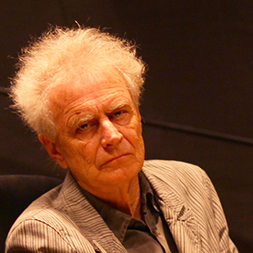The Thoughts that Once We Had
Thom Anderson
- USA
- 2015
- 108min
- DCP
- color/black and white
Synopsis
The Thoughts That Once We Had is a personal history of cinema, partly inspired by Gilles Deleuze’s The Movement-Image and The Time-Image (quotations from these books appear intermittently) and partly by my discovery of the classic Hollywood musical comedy, occasioned by a That’s Entertainment marathon on Turner Classic Movies the night of December 31, 2013-January 1, 2014. Perhaps little of these inspirations remain in the film, but it is certainly a personal history of cinema. Of course, many others are possible, and anyone’s history is as valid as mine.
Review
Los Angeles Plays Itself (2003), an essay film gracefully combined video clips extracted from about 200 films set in Los Angeles with analystic (also harsh and combatant) narrations, is a monumental work, also called ‘compilation film’, since it carries cinematic practice to a criticism level to a high degree. The Thughts That Once We Had is a full-length compilation film directed by Tom Anderson who intermittently introduced his short films such as Get out of the Car (2010), The Tony Longo Trilogy (2014) and the documentary Reconversão (2012). Although it is a developed work from his one-year Deleuze seminar and it uses quotes from Cinema as texts (totally excluding voice-over narration instead which was widely used in Los Angeles Plays Itself), the film is not allowed to be considered as audiovisual illustrations. What embraces this film is hardly defined as critical impulse, but there is pure urge of an individual who wants to enjoy blissful vertigo as flying from ‘the films that once we had’ having Deleuze thoughts as stepping-stones. Can we assure that this kind of impuse is just nostalgia? Anderson tries to answer the question at the end of the film with text which is very moving. “To those who have nothing∙∙∙ must be restored∙∙∙the cinema.” [Yoo Un-Seong]
Director
-

Thom Anderson
A Train Arrives at the Station (2016)California Sun (2015)The Tony Longo Trilogy (2014)Reconversão (2012) The Thoughts That Once We Had is a personal history of cinema, partly inspired by Gilles Deleuze’s The Movement-Image and The Time-Image (quotations from these books appear intermittently) and partly by my discovery of the classic Hollywood musical comedy, occasioned by a That’s Entertainment marathon on Turner Classic Movies the night of December 31, 2013-January 1, 2014. Perhaps little of these inspirations remain in the film, but it is certainly a personal history of cinema. Of course, many others are possible, and anyone’s history is as valid as mine.A working title was “Great Moments in the History of Cinema,” but the movie outgrew this title. It became more ambitious. It found a form that satisfied me.The title is not meant to imply that cinema is dead. On the contrary: all art today aspires to the condition of cinema. Instead, the title suggests that moving images and sounds are thoughts in themselves because motion pictures are not perceived, they are remembered.The Thoughts That Once We Had tells more than I know, although I learned a number of material facts about cinema and my relation to cinema while making it: few film-makers are capable of making what Deleuze calls an “affection-image,” an image that imprints the face as a pure affect; the melody of the gaze is also rare; the more grounded the camera, the better (what Joris Ivens taught); a shot from The Eleventh Year by Dziga Vertov anticipates Wavelength; reading aloud is the most cinematic of all actions; my interest in cinema is more carnal than I realized; what interests the camera is not a given, but something the camera discovers anew for every shot. Other thoughts will be given to other viewers.This may all sound a bit formidable, but I also intended to bring a touch of American vulgarity to the so-called “essay film.” The movie was not calculated to drive liberals crazy; it just turned out that way
Credit
- ProducerThom Anderson
- Editor Thom Anderson, Andrew Kim, Christine Chang
Phone
Phone 82 323 666 6977
E-mail icepickslim@gmail.com




